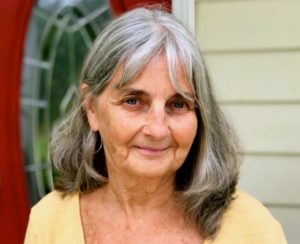
The citizens of rural Buckingham County are becoming experts on polluting industries, because they are living through a kind of double jeopardy: they helped defeat the Atlantic Coast Pipeline in 2020 only to be threatened with the prospect of industrial gold mining later that year.
Their fight against the Atlantic Coast Pipeline (ACP) began in 2014, and was part of the wider pipeline resistance movement in Virginia that fought and defeated the ACP and continues against the Mountain Valley Pipeline. Dominion Energy not only planned to run the pipeline through the rural county – they intended to site a compressor station in the predominantly Black Union Hill community.
The compressor station was an ugly example of environmental racism. It would have produced toxic emissions and unbearable noise. It would have put human lives and health at risk – Black lives and the lives of people with disabilities in particular.

For Chad Oba, who helped found Friends of Buckingham, seeing and acting on the interrelatedness of the whole ecosystem flows from her background. She says that being in nature has always been a part of who she is.One of her earliest childhood memories is of “lying on my back in the woods and looking at the light coming through the leaves.” When a swath of those same woods was clear cut, she remembers weeping. “It’s wrong to come and take these living things that nurture us. They have a right to be there.”
It is this sense of intimacy with the place she lives and with her neighbors that undergirds the grassroots work that Friends of Buckingham has done over the past 7+ years. Ultimately, Friends of Buckingham helped anchor the statewide movement that defeated the ACP, a testament to the power of persistence and the importance of organizing everyday people at the sites where race, class, economics, and ecology intersect.
Now there is talk of gold mining in Buckingham. This wouldn’t be the first time – Buckingham was part of a gold belt with dozens of mines from Fairfax to Halifax in the early 1800’s before the California gold rush sent prospectors packing west, and those 200 year-old mines are Brownfields sites today. Those same communities could become open to mining again if it is allowed in Buckingham. It is unclear how the Canadian firm Aston Bay Holdings caught wind that there might be money to be made in Buckingham’s soil, but Friends of Buckingham learned when the Planning Commission learned of and investigated drilling activities on private property – activities they ultimately allowed as “by right” use by the property owner. Aston Bay Holdings thinks there may also be other metals to be found, such as copper, lead, and zinc.
The mining technique that could be used to extract these minerals would have catastrophic ecological impacts, not just in Buckingham, but anywhere downstream in the James River watershed. Once again Friends of Buckingham needs the support of allies across Virginia to help raise awareness of the issue, and they are hoping to see more young people, like new resident Stephani Rinaldi, join the organization and bring fresh energy to the fight.
Stephani joined Friends of Buckingham after moving to the county from Northern Virginia with her husband, hoping to put down roots in a more peaceful, rural community. Stephani says that she’s never been an environmental justice activist. “I grew up in the city, and maybe went camping once in childhood.” When a neighbor showed up on her porch asking if she’d heard about the gold mine that could open on the adjacent property (she hadn’t), the neighbor put her in touch with Friends of Buckingham. She was eventually able to quit her government job based in DC and has been working on this issue full-time.
That full-time work has consisted of lots of meetings and calls and engagement with legislators at the General Assembly. In 2021 Friends of Buckingham drafted and won passage of a bill that commissioned a study of the impacts of industrial gold mining in Virginia, a study that is now underway and is headed up by the National Academy of Sciences. More recently, Republican Delegate James Edmunds agreed to co-sponsor HB 250, which asks the General Assembly to investigate the impacts of metals mining. This gives Stephani hope that “we can still be bi-partisan on big issues.”
Looking to the future, Friends of Buckingham needs help raising awareness of what’s happening in Buckingham and how the issue of metals mining impacts everyone in Virginia. They also need the public to think critically about who benefits and who will be hurt as we shift from fossil fuels to “green” infrastructure that still relies on mineral mining. As an organization founded to stop a fracked gas pipeline, Friends of Buckingham has put everything on the line to end the use of fossil fuels. As an organization now poised to fight the exploitation of their community for precious metals, they also refuse to be a sacrifice zone for a new brand of capitalism.


